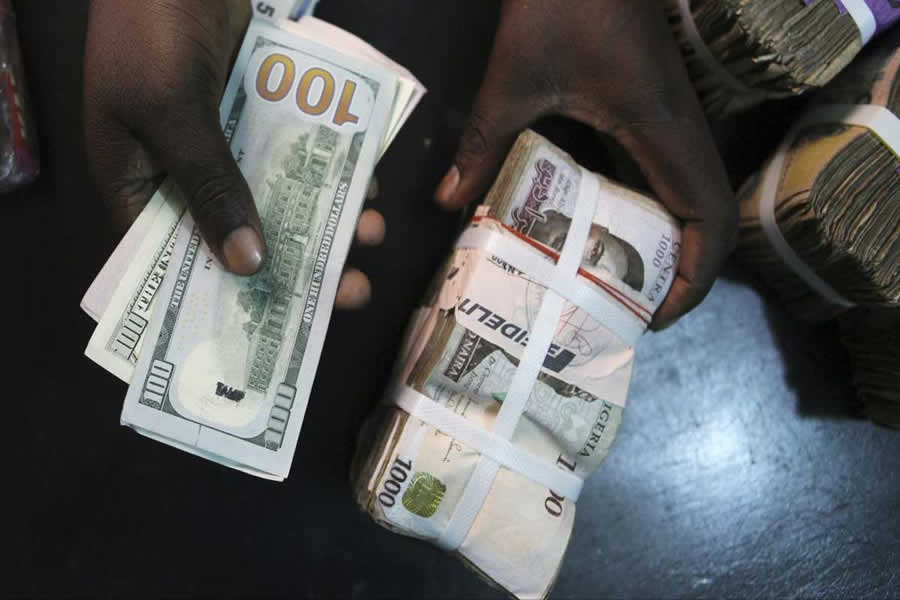Despite recent reforms taken the Bola Tinubu administration, investigations by Daily Sun can reveal that manufacturers and businesses are still unable to access forex at the official market.
Consequently, naira exchange rate to the Dollar fell to N803.90/$1 at the Investors’ and Exporters’ (I&E) window last week.
The supply constraint is said to be piling pressure on the price and Nigerian students hoping to study overseas are now faced with uncertainties ahead of school fees season from September 2023.
The figure reported, is the lowest ever the exchange rate has fallen to since Nigeria adopted the managed float exchange rate system and the first time the rate has closed above N800/$1.
The closing rate of N803/$1 represents a 7.3 per cent decline from the start of the week when it closed at N744/$1. The first signal of a challenge was when the exchange rate closed at N776/$1.
Further investigations reveal that there was a similar decrease recorded at the parallel market as Naira fell to N822/$1.
Meanwhile, Nigeria’s FX reserves decreased by $2.01 million week-on-week (w/w) to $34.06 billion.
Reacting to the development, economic analysts said they expect the re-introduction of the “willing buyer, willing seller” model at the I&E window to influence the exchange rate direction.
“Nonetheless, while the CBN’s abolishment of its multiple FX windows is positive in boosting foreign investors’ confidence, we think they will adopt a wait-and-see approach, for now, looking for signals on the CBN’s plans to start clearing the FX backlogs and boosting FX supply to support the market in the near term”, analysts at Cordros Research said.
For his part, Head of Research at FSL Securities, Victor Chiazor, said that banks appear to be fueling the demand owing to the increase in the amount of FX that can be spent on dollar cards abroad.
“Let us not forget that we are still facing a money supply problem of between N55 trillion or N57 trillion. This might be the cause of the soaring demand of FX especially as the new administration has swung into action. We expect to see the FX demand solved but it will take time because a lot of backlogs still exist.
That said, the country was not fully prepared for the consequences when the FX windows were collapsed into one segment”, Chiazor said.
It will be recalled that the new government had insisted on the unification of the exchange rate amid calls from local and foreign businesses to end the multiple exchange rates.
Bowing to pressure, the Central Bank of Nigeria (CBN) abolished the nation’s multiple FX window and collapsed all the official FX segment into the I&E window.
Sunnews

